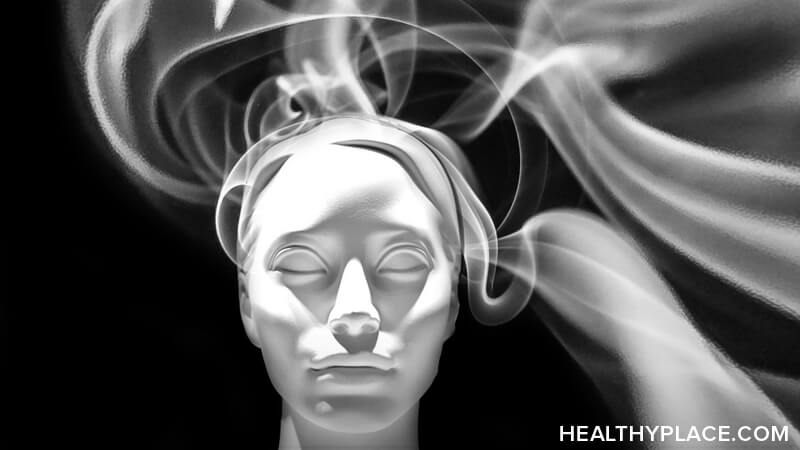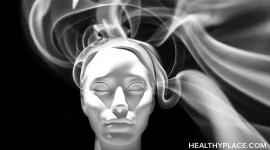What Are the Symptoms of Schizophrenia?

Schizophrenia is a complicated, serious mental illness, and schizophrenia signs and symptoms can be hard to understand. As a result, many people—from the people who live with it to their families to people in society, to people in the media and to Hollywood television and movie producers—misjudge this illness of the brain. Developing awareness of the symptoms of schizophrenia will decrease negative stereotypes of schizophrenia and increase compassion for those who live with it. Just what are the symptoms of schizophrenia? Let’s take a look.
The symptoms of schizophrenia are multifaceted. Consequently, they are divided into multiple categories. The primary features of schizophrenia involve these symptoms:
- Hallucinations
- Delusions
- Disorganization (of speech, behavior)
- Blunted emotions, lack of motivation
These symptoms of schizophrenia (and deeper, underlying symptoms) don’t just pop up overnight. There are signs that indicate that the symptoms and diagnosis of schizophrenia are coming.
The Signs of Schizophrenia
The onset of the illness is preceded by the prodromal phase of schizophrenia. During the prodromal, or early, stages, distinct signs are present that indicate that something troubling might be going on in the person’s brain. These signs can include changes in behavior, thinking, communicating, and emotions. Some of the prodromal signs of schizophrenia include:
- Drop in performance at school, work, home tasks, etc.
- Declining self-care and hygiene
- Withdrawal from family, friends, activities, hobbies, leading increasingly to isolation
- Responding with anger to perceived criticism
- Problems with focus, concentration, and clear thinking
- Declining memory
- Trouble communicating because of confused speech
- Inappropriate or irrational statements made to self or others
- New ideas that seem strange and/or intense
- Suspiciousness, unease around others
- Problems separating fantasy from reality
- Intense emotions or, conversely, no emotion at all
- Lack of expression
- Change in sleep patterns
Someone doesn’t have to display all of these signs to be considered in the prodromal phase of schizophrenia; however, if he or she exhibits just one or two, and those are relatively mild, this isn’t a cause for concern about schizophrenia developing. It’s having multiple signs (exact signs differ from person to person) that intensify rather than disappear that is an indicator that someone is in the prodromal phase of schizophrenia.
Eventually, the prodromal phase becomes full-blown schizophrenia with its difficult list of symptoms.
Symptoms of Schizophrenia
The short list of schizophrenia symptoms above delineates the major features, but it doesn’t paint a vibrant enough picture of the serious mental illness that is schizophrenia. In the DSM-5, the American Psychiatric Association succinctly states schizophrenia’s feature symptoms needed for diagnosis, and they describe them thoroughly in the accompanying write-up. Knowing the schizophrenia symptoms in the DSM-5 helps clarify what this illness is like.
According to the DSM-5, to be diagnosed with schizophrenia, someone must experience positive and negative symptoms of schizophrenia. Positive symptoms are those that add to or distort a person’s normal experiences. Negative symptoms take away from someone’s ordinary experiences.
Positive symptoms can take the form of:
- Hallucinations (sensory distortions involving seeing, hearing, feeling, smelling, or tasting things that aren’t real)
- Delusions (thought distortions, believing things that aren’t real; these can follow many different themes such as paranoia, grandeur, and more)
- Disorganized language (muddled, unintelligible speech, inappropriate responses to questions, lack of logical flow in sentences, ideas, conversations)
- Disorganized behavior (inappropriate behavior, lack of hygiene, dressing inappropriately for the weather)
Negative symptoms can include:
- Emotionless expression
- Avolition (inability to follow goal-oriented behavior; lack of motivation)
- Alogia (restricted thought and speech)
Often, someone with schizophrenia will experience other symptoms, too. Schizophrenia used to be divided into different subtypes of schizophrenia according to the other symptoms people exhibited. The subtypes are no longer used, but the traits still exist. Therefore, people who live with schizophrenia can have these symptoms, too:
- Catatonic symptoms
- Almost impossibly slow movements
- Mutism (failure to speak)
- Acting as if others aren’t even there (“seeing through” them, ignoring talk)
- Holding body in strange positions for long periods of time
- Mimicking others’ speech
- Random bursts of purposeless, hyperactive behavior
- Paranoid symptoms
- Suspicious behavior, thoughts
- Belief that others are out to get him/her
- Protective actions
- Disorganized symptoms
- Lack of focus, purpose
- Problems with thought, speech
- Similar to the disorganized behavior mentioned above, only more predominant and intense
If you are curious or concerned about your own symptoms, this schizophrenia symptoms test could help you pinpoint and sort out your symptoms. Such tests can’t diagnose schizophrenia (or any other mental disorder), but they can help you understand what you’re experiencing as well as provide a tool for talking to your doctor.
The experience of schizophrenia is unique to every individual who has it. The symptoms of schizophrenia are general features that are part of it, but everyone experiences them differently. Still, understanding these general symptoms will lead to understanding those who live with it.
APA Reference
Peterson, T.
(2021, December 21). What Are the Symptoms of Schizophrenia?, HealthyPlace. Retrieved
on 2026, March 5 from https://www.healthyplace.com/thought-disorders/schizophrenia-symptoms/what-are-the-symptoms-of-schizophrenia


